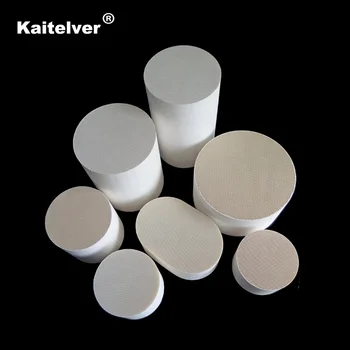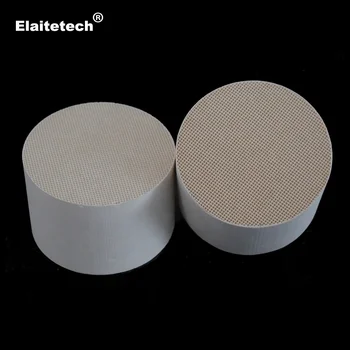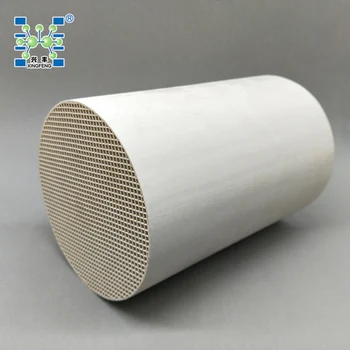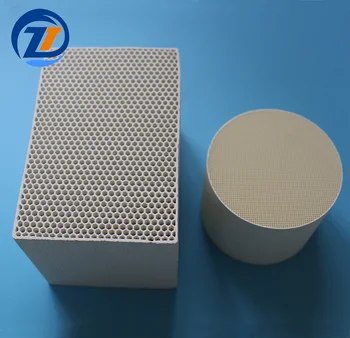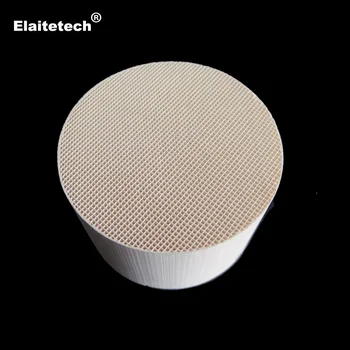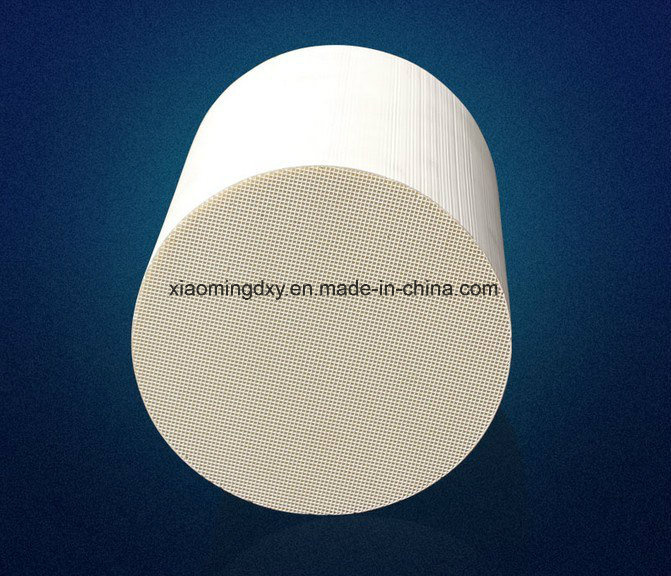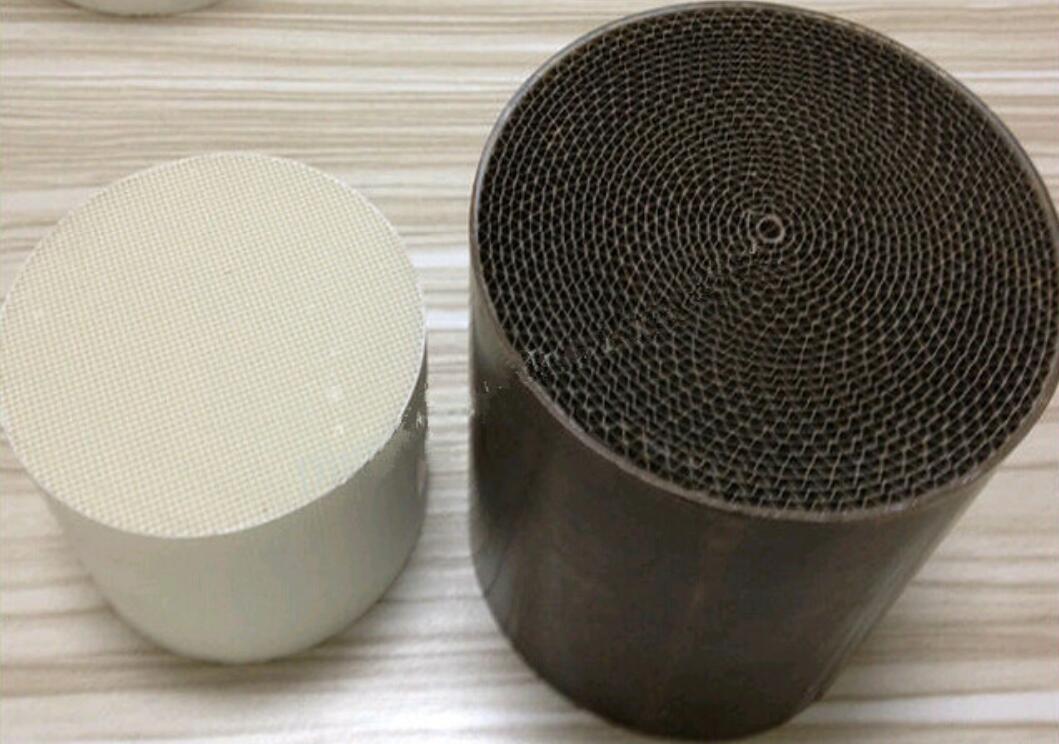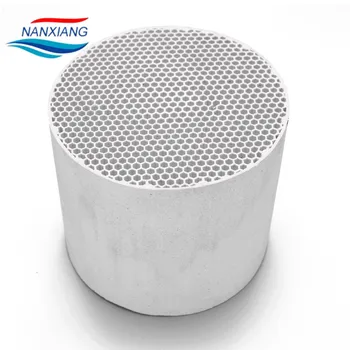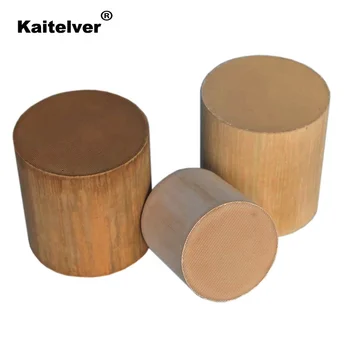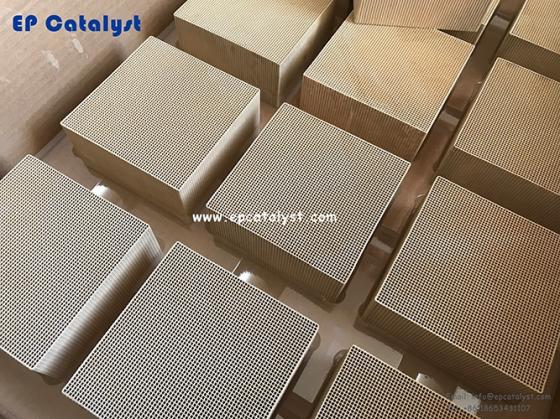Monolithic Catalyst Vs Ceramic Honeycomb
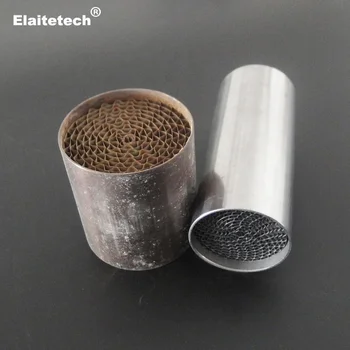
The catalyst support of the present invention is formed of ceramic such as cordierite of which coefficient of thermal expansion is lower than alumina and is provided with microcracks which occur when the honeycomb structure is formed.
Monolithic catalyst vs ceramic honeycomb. Many coating companies will suggest ceramic to avoid production. Ceramic substrates honeycombs usually have square cells while most metallic substrates have sinusoidal channels. The hydrogen pressure and the temperature were varied between 30 40 bar and 509 523 k respectively. Today almost all automobiles are equipped with either ceramic or metallic honeycomb supported catalysts.
Monoliths are sometimes called flow through substrates. Each monolith contains thousands of parallel channels or holes which are defined by many thin walls in a honeycomb structure the channels can be square hexagonal round or other shapes. Applied catalysts manufactures a wide variety of abate voc ceramic monolith supported catalysts. The flow pattern in the monolithic catalyst reactor was segmented gas liquid flow slug flow.
Monolithic catalyst substrates figure 1 are made of ceramics or metal. A catalyst support provided with an activated alumina layer which is formed on the surface of the ceramic honeycomb structure is disclosed. Application areas in which monolithic catalysts have superior performance. The pelleted design is obsolete and increasingly difficult to find on the market.
Honeycombs and foams william m carty and peter w lednor recent advances have been made in research on ceramic monolithic catalyst supports particularly on honeycombs and ceramic foams. Ceramic substrates have been the choice for catalyst coating companies for decades. In the case of honeycombs cordierite is the. Engineers prefer metallic coating companies prefer ceramic.
In the processes of the chemical industry however their current use is very limited. Automotive oem s predominately utilize these parts due to their lower component costs. Monoliths for automotive catalytic converters are made of a ceramic that contains a large proportion of synthetic cordierite 2mgo 2al 2 o 3 5sio 2 which has a low coefficient of thermal expansion. In this paper the current status of the monolith technology for applications in the chemical industry is reviewed.
In the off road emission control applications monolithic metallic or ceramic catalyst supports became the standard. Monolithic catalyst supports are honeycomb structures with many small cells or parallel channels that allow exhaust gases to run axially through the catalyst. Monolithic ceramics and heterogeneous catalysts.




